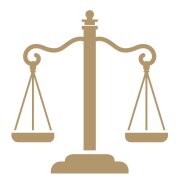Best Probate Lawyers in Athens
Share your needs with us, get contacted by law firms.
Free. Takes 2 min.
List of the best lawyers in Athens, Greece
About Probate Law in Athens, Greece
Probate law in Athens, Greece, is the legal process by which a deceased person's estate is administered and distributed according to their will or, in the absence of a will, according to Greek inheritance laws. This process involves validating the deceased's will (if available), appraising the estate, paying off debts and taxes, and distributing the remaining assets to rightful heirs or beneficiaries. Given that the probate process can be intricate and lengthy, understanding the nuances of Greek probate law can greatly facilitate seamless estate administration.
Why You May Need a Lawyer
While some probate matters can be managed without legal assistance, there are several situations where hiring a lawyer becomes necessary:
- If the will is contested or if there are disputes among heirs.
- When the estate includes complex assets that require valuation or management.
- If the estate owes substantial taxes or debts that need careful handling.
- To help interpret and navigate complicated legal documents or minor discrepancies in a will.
- For international cases, especially when assets or heirs are located outside Greece.
Local Laws Overview
The probate process in Athens is governed by Greek Civil Law, particularly articles in the Greek Civil Code dealing with inheritance and succession. Key aspects include:
- Recognition of Wills: Greek law allows for multiple will types, including holographic (handwritten by the testator) and public wills.
- Forced Heirship: Certain relatives, including spouses and children, are entitled to a statutory portion of the estate.
- Probate Court: The administration of an estate is supervised by probate court, which ensures lawful distribution according to the will or succession laws.
- Executor's Role: The executor is responsible for gathering assets, paying liabilities, and distributing the estate as per the will or court's direction.
- Statutory Timeframes: There are specific periods within which claims against the estate can be lodged and the probate process must commence.
Frequently Asked Questions
What is probate, and is it always necessary?
Probate is the legal process of validating a will, paying debts, and distributing the deceased's estate. It is not always necessary, especially in cases where assets are jointly owned or have named beneficiaries.
How long does the probate process take in Athens?
The duration varies depending on the estate's complexity and any legal disputes, typically ranging from a few months to a few years.
What happens if the deceased left no will?
If there is no will, the estate is distributed according to statutory succession laws, which prioritize close relatives such as spouses and children.
Can a will be contested in Greece?
Yes, wills can be contested on grounds such as undue influence, lack of capacity, or non-compliance with legal formalities.
Do heirs need to pay taxes on inherited property?
Inheritance tax is applicable in Greece, with rates and exemptions varying based on the relationship to the deceased and the estate's value.
What is the role of an executor?
The executor implements the will's directives, manages estate assets, settles debts, and distributes inheritances, potentially under court oversight.
Are international wills recognized in Greece?
Greece can recognize international wills, provided they comply with Greek legal standards and formalities.
How can someone renounce their inheritance?
To renounce an inheritance, an heir must formally declare their rejection in probate court within a specified timeframe, usually four months.
What if an heir is a minor?
A minor's inheritance is typically managed by a legal guardian until they reach the age of majority.
Can debts exceed the estate's value?
Heirs are generally not responsible for debts exceeding the estate's value; debts are settled from the estate before distributions.
Additional Resources
Those seeking further information on probate in Athens, Greece, may consider the following resources:
- Greek Ministry of Justice: Offers information about probate law and legal processes.
- Athens Bar Association: Provides referrals to probate lawyers.
- Consulates/Embassies: For expatriates dealing with international probate issues.
- Estate Planning Consultancies: For personalized guidance and services.
Next Steps
If you require legal assistance in the field of probate, consider the following steps:
- Consult with a qualified probate lawyer in Athens to review your situation.
- Gather all relevant documents concerning the estate, such as the will, asset listings, and debt obligations.
- Attend initial consultation meetings prepared with questions and any specific concerns you may have.
- Consider mediation services if disputes arise among beneficiaries to reach amicable resolutions.
Engaging with legal professionals early in the process can greatly ease the complexities associated with probate in Greece.
Lawzana helps you find the best lawyers and law firms in Athens through a curated and pre-screened list of qualified legal professionals. Our platform offers rankings and detailed profiles of attorneys and law firms, allowing you to compare based on practice areas, including Probate, experience, and client feedback.
Each profile includes a description of the firm's areas of practice, client reviews, team members and partners, year of establishment, spoken languages, office locations, contact information, social media presence, and any published articles or resources. Most firms on our platform speak English and are experienced in both local and international legal matters.
Get a quote from top-rated law firms in Athens, Greece — quickly, securely, and without unnecessary hassle.
Disclaimer:
The information provided on this page is for general informational purposes only and does not constitute legal advice. While we strive to ensure the accuracy and relevance of the content, legal information may change over time, and interpretations of the law can vary. You should always consult with a qualified legal professional for advice specific to your situation.
We disclaim all liability for actions taken or not taken based on the content of this page. If you believe any information is incorrect or outdated, please contact us, and we will review and update it where appropriate.










